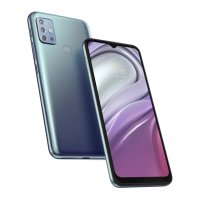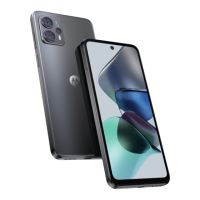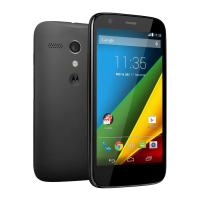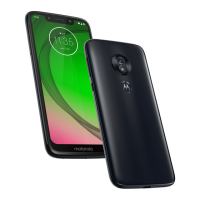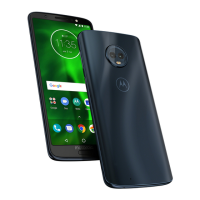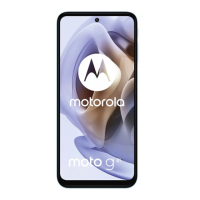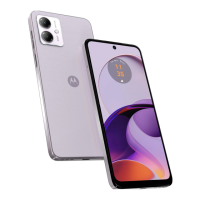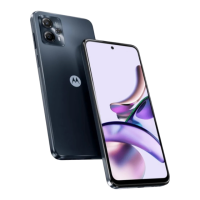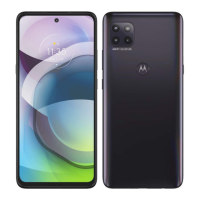3. If you selected PTP when you connected the phone, in File Explorer choose whether to import pictures
and videos automatically or manually.
4. Open a second File Explorer window to see your computer folders.
5. Navigate to the folders or files to transfer, then drag and drop them to and from the open phone
storage and computer folders.
Transfer to/from a Mac
1. Ensure the phone is properly connected to the computer using the steps above.
If you don't unlock the phone and change the USB connection to allow file transfers, you won't see any
files on your phone.
2. On your computer, download the Android File Transfer application from www.android.com/filetransfer
and follow the onscreen instructions.
Location of files
Files are stored in these folders on your phone:
•
DCIM: (Digital Camera Images) Photos and videos taken with the Camera app
•
Pictures: Photos you edited and photos from apps other than Camera
•
Download: Files downloaded from the internet
•
Music: Files for apps that play music
•
Ringtones: Sound files for ringtones
•
Notifications: Sound files for notifications
•
Alarms: Sound files for alarms
Fix an issue
If you’re having issues, try these troubleshooting steps.
Change USB preferences
Available USB modes
File transfer: Allow all types of files to transfer from your phone to another device.
USB tethering: Share your phone’s mobile data connection with another device.
MIDI: Connect electronic musical instruments.
PTP: Allow only photos to transfer from your phone to another device.
No data transfer: Charge battery over USB.
Change USB mode
The default USB mode is No data transfer, which means your connection is charging the phone only. To
allow your phone to communicate across USB for anything other than charging the phone, you need to
change the USB connection mode.
Settings : Connected devices
136
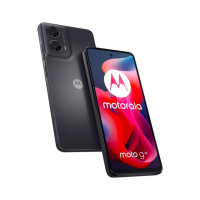
